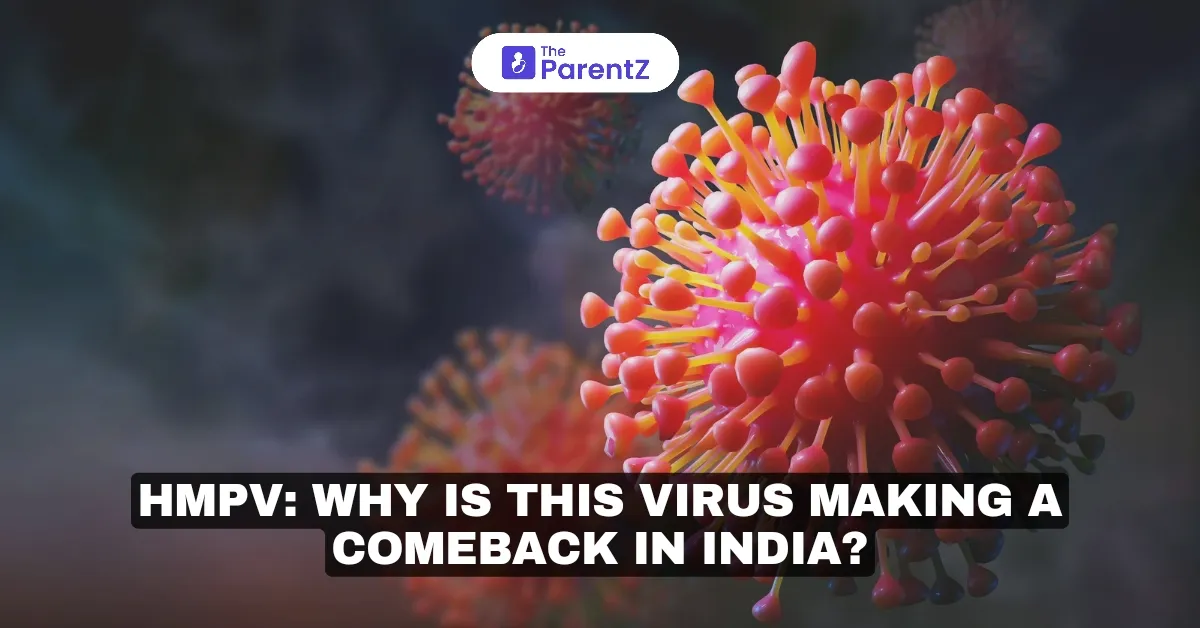The reality is—the world is still recovering from the aftershocks of the COVID-19 pandemic. However, news of another respiratory virus is gaining traction lately. Human Metapneumovirus (HMPV), a virus that has been hiding under the veil of respiratory illnesses for decades. Recently, it has resurfaced in India with an alarming frequency and has left experts and households looking for answers. In India the first case reported involves an infant diagnosed with HMPV after she was admitted with bronchopneumonia.
So why is HMPV making a comeback in India now? Read below this article to know why HMPV is making its comeback and how you can stay protected.
What Is HMPV?
Human Metapneumovirus (HMPV) is a respiratory virus that primarily affects the lungs and airways. The symptoms may vary from mild cold to as severe as respiratory distress. It was first identified in 2001, which has often been overseen because of its viral cousins, including influenza and RSV.
In recent months, the virus has been detected more frequently in India and has thus raised many concerns. The virus is particularly concerning for young children and the elder individuals with a weak immune system. In fact, in a study, it is stated that HMPV contributes to nearly 4-16 percent of all respiratory infections globally.
Why Is HMPV Making A Comeback In India?
Here are a few reasons why HMPV might be marking its entry in India again.
Post-Pandemic Immunity Gaps
The COVID-19 pandemic was marked as a period of masks, lockdowns, and curfews. Even though these measures played a big role in curbing the spread of COVID-19, it also limited exposure to other common viruses like HMPV. This eventually resulted in a lack of immunity in the general population against HMPV, particularly in children born during the pandemic years.
Seasonal Vulnerability
HMPV typically thrives during colder months. Thus India's current seasonal ground is actually a breeding season for the virus. Besides, sudden weather changes, along with air pollution in urban areas, further amplify the respiratory illnesses, thus making people more susceptible to HMPV.
Lack of Awareness
The truth is—unlike influenza, many people are still aware of the HMPV virus. Thus, many cases go undiagnosed, especially due to limited testing and overlapping symptoms with other respiratory illnesses. Eventually, it results in the virus spreading unchecked.
Symptoms To Look For
The symptoms of HMPV can overlap with those of common flu and cold. Here are the common symptoms you must watch out for.
- Fever
- Cough
- Runny or stuffy nose
- Shortness of breath
- Wheezing or difficulty breathing
However, kids under the age of five can experience even more severe symptoms, including bronchitis and pneumonia.
Tips To Stay Protected Against HMPV
Here are a few essential tips and precautions that can keep you protected against the virus.
- Avoid Crowded Spaces: The best approach is to limit outdoor exposure altogether, especially during peak times, especially if you are likely more vulnerable or have low immunity.
- Washing Your Hands: Following up good hygiene practices, such as washing hands frequently with soap and water for at least 20 seconds, can also reduce the risk of exposure.
- Boost Immunity: Immunity comes from within, which is why it is important to incorporate a balanced diet rich in vitamins, adequate sleep, and regular exercise in your daily routine to improve your immune system.
- Use Masks: Lastly, if you live in areas with high pollution or during seasonal spikes, wearing masks regularly can significantly help reduce the risk of respiratory infections.
Takeaway
While HMPV has gained recognition unlike its viral cousins such as influenza or RSV, the recent surge in reported cases in India lately has raised some significant concerns about its reappearance. According to the World Health Organization (WHO), respiratory viruses collectively cause millions of hospitalizations and deaths worldwide each year. Therefore, there’s a strong need for preventive measures and strong awareness among the people. If you notice any symptoms, consult your healthcare provider at the earliest.








Be the first one to comment on this story.